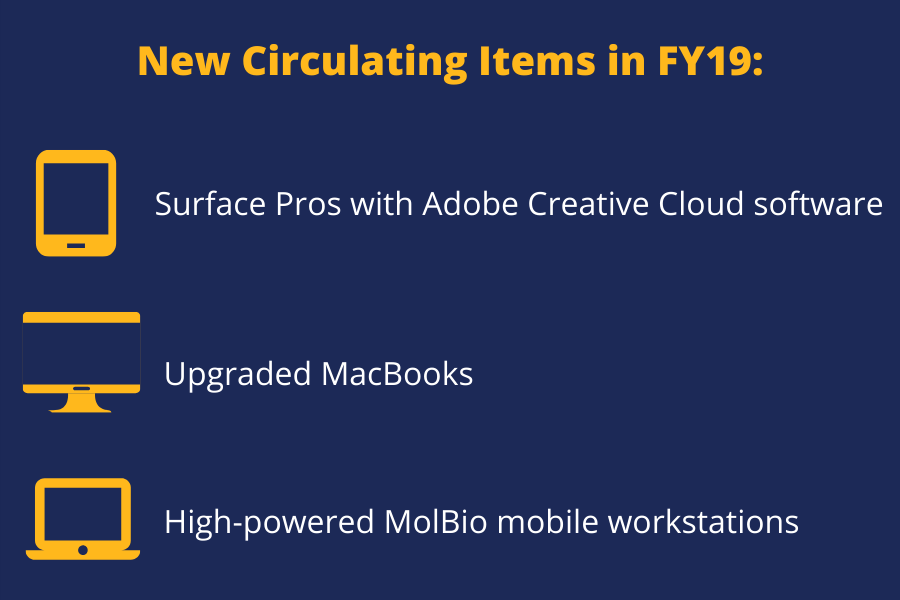FY 19 Annual Report
The Health Sciences Library System
Resources & Services
The current economic climate necessitates that HSLS build and manage our collections of resources in the most cost-effective way. Subscription costs continue to rise at rates far above general inflation. In response to the changing information needs of our diverse user population, HSLS carefully analyzes usage statistics, publication patterns, and other metrics to identify materials to be discontinued and new items to be added.
Online Collections
HSLS’s forward-thinking collection management process supports a robust online collection of e-journals, e-books, databases, specialized software, and a usage-driven collection of print materials. Library users have access to the following online collections:
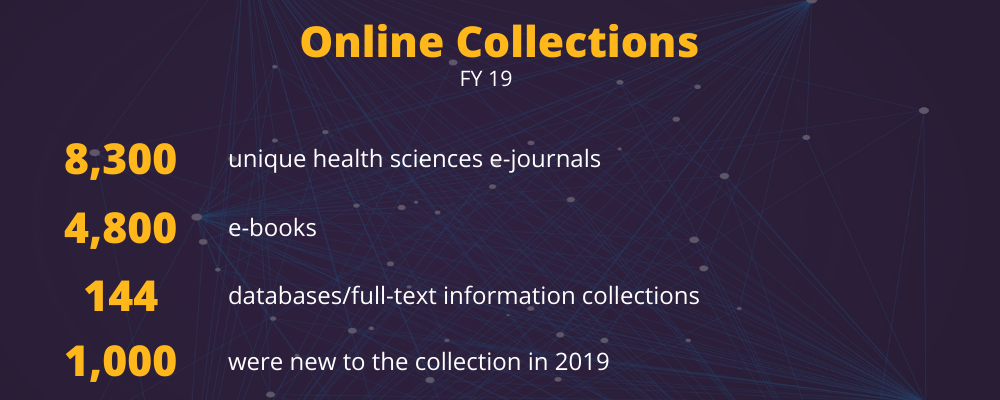
Physical Collections
HSLS experienced growth in physical collections throughout FY 19. These resources residing in the library includes the current collection of newly published academic and medical titles, the leisure reading collection of popular fiction and nonfiction, and the special collection of rare books. Bound journals and monographs are held in offsite storage.
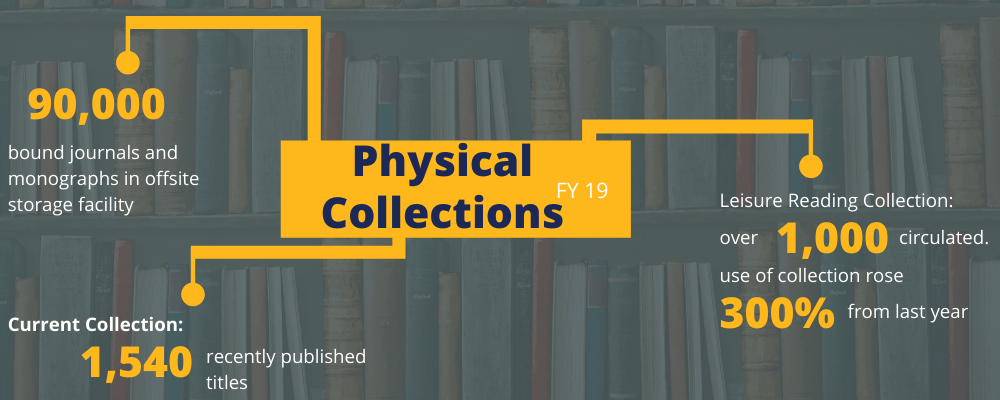
HSLS Website
The HSLS web site (https://www.hsls.pitt.edu) is the entry point to the wide range of HSLS resources and services. Popular HSLS web content includes the homepage, featuring upcoming classes, library news and events, discovery tools and easy access to popular library services and resources. HSLS’s web based federated discovery technologies, powered by IBM Watson Explorer, continues to enrich education, research and clinical information discovery with search tools that span multiple platforms and information silos.
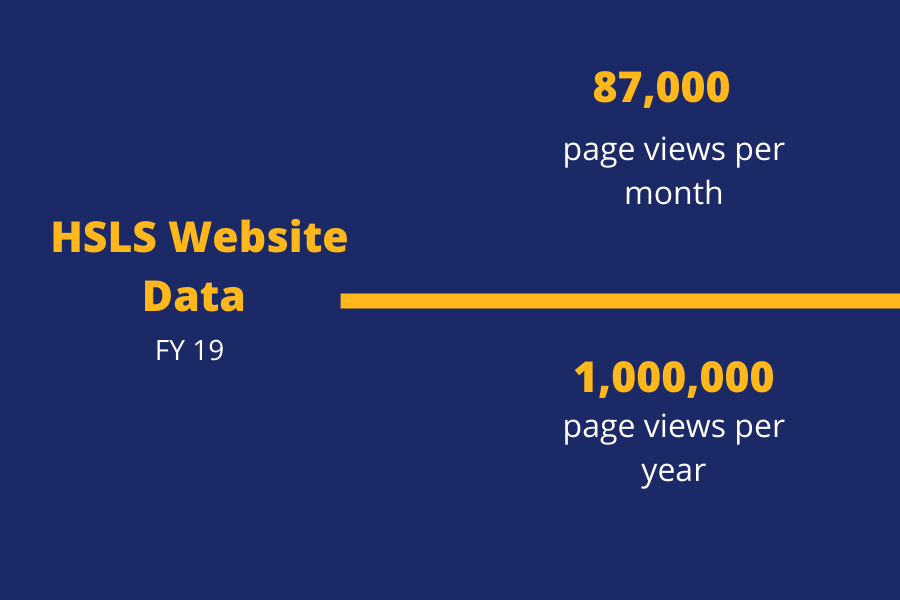
The UPMC Collection
In FY 19, HSLS launched the UPMC Health Sciences Digital Library to provide streamlined access to cutting edge, high-quality medical information to UPMC employees.
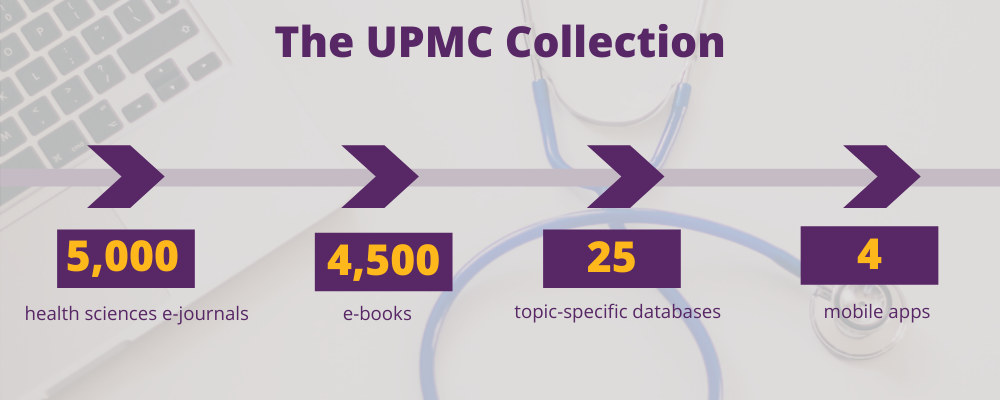
Pitt Data Catalog
The Pitt Data Catalog is a tool to help researchers identify and locate datasets created by the University of Pittsburgh faculty and staff. The Pitt Data Catalog grew to 71 records in FY 19, including new records on software code and 3D data models. The catalog was established in January 2018 in collaboration with six participating health sciences libraries across the country called the Data Catalog Collaboration Project (DCCP). The DCCP expanded the number of partners to nine in FY 19 and offered several presentations at the Medical Library Association annual meeting and the Mid-Atlantic Chapter annual meeting.
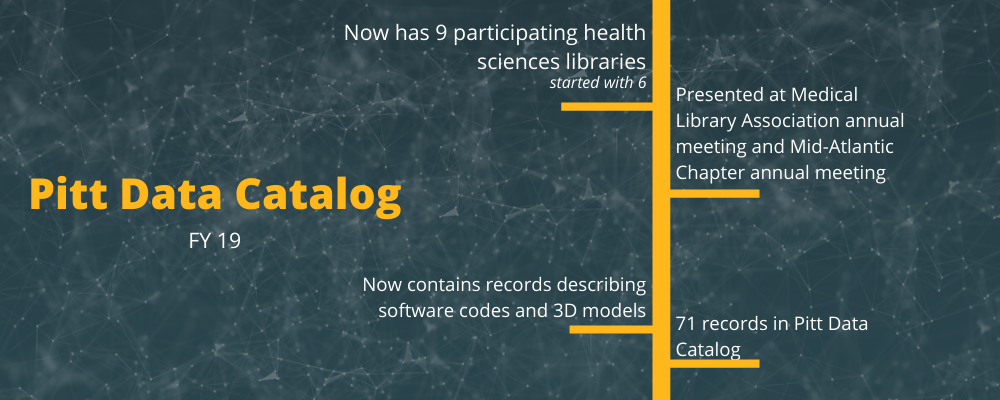
MolBio Software
HSLS offered 18 commercial bioinformatics software and database packages used in precision medicine and basic sciences research across the University.
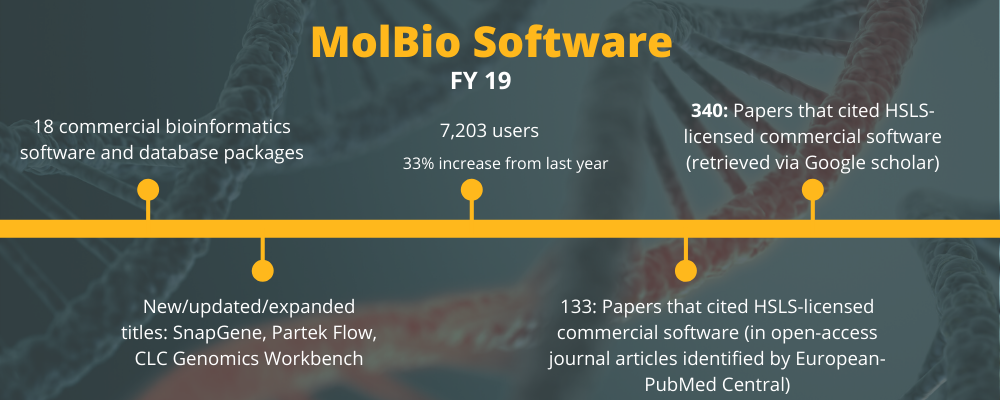
Virtual Reality
In the spring of 2019, Falk Library debuted a new way to connect our health sciences community with simulations and applications utilizing cutting-edge virtual reality technology. Medical applications include WyzLink, 3D Organon VR Anatomy (an anatomy atlas), and Medical Holodeck DICOM viewer for MRI and CT scans.
Other technology provided includes desktops, charging cables, and other items.

Technology Help Desk at a Glance
The Technology Help Desk offered a wide range of services in FY 19 including:
- Circulated technology equipment including Surface Pros, MacBooks, phone chargers, and headphones
- Supported 356 HSLS classes and events in FY 19
- Provided technology for Falk Library’s conference rooms
- Offered training for classroom technology
- Provided specialized software services for MolBio classes
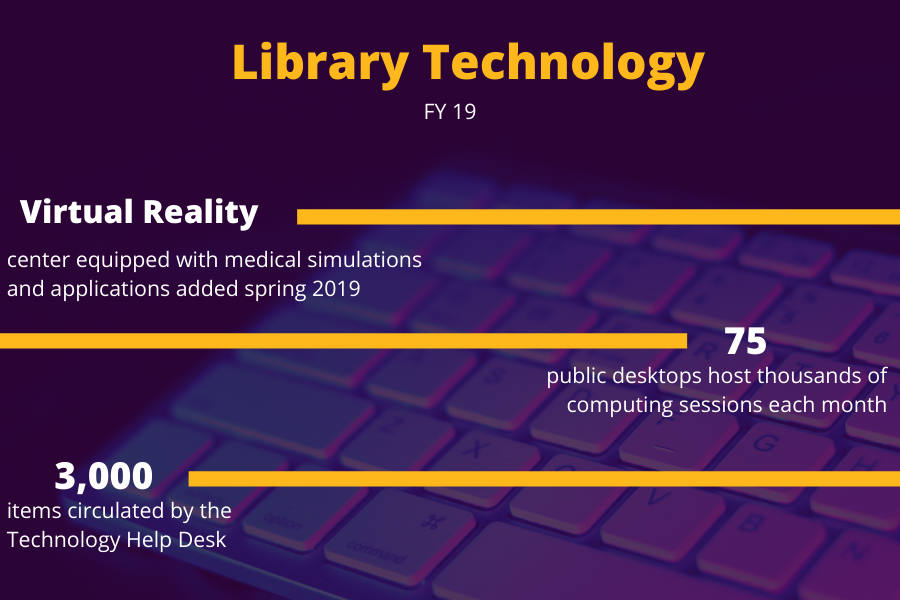
Popular Items Circulated by Technology Help Desk:
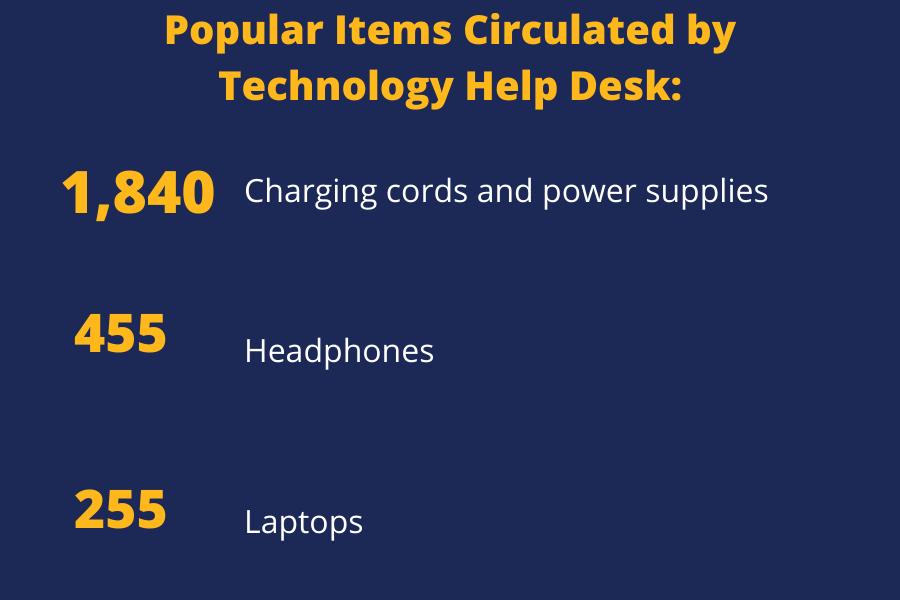
New Circulating Items in
FY 19:
